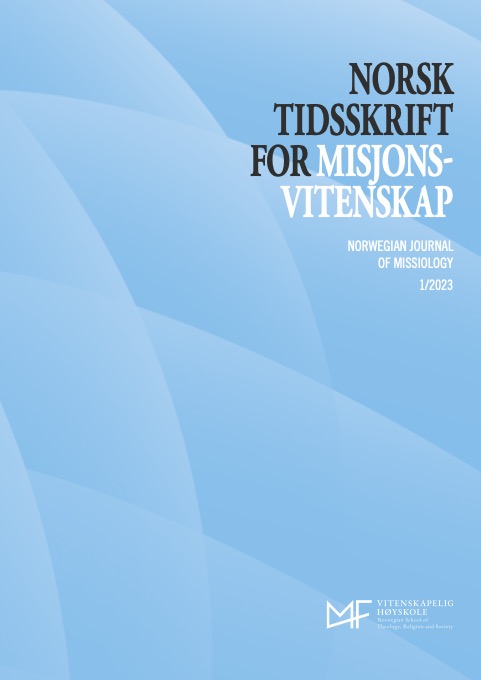My Religious Identity: An Unfinished Project
DOI:
https://doi.org/10.48626/ntm.v77i1.5497Resumé
The matter of identity is ever present in academic, and non-academic, discourses on religion and interreligious relations: identity as a category of something that can be nailed down, established and maintained with the help of definitions and logic; identity as a matter of something stable and even rigid. This is significant in deliberations regarding syncretism. In this paper, references are made to a previous study in which it is argued that a ‘religious approach’ to syncretism is wiser in several respects than what may be labelled a ‘logical approach’. The opposition should by no means be pushed too far, and there are of course many interesting in-between positions. Nonetheless, fundamentally one could have one approach rather than another and this indeed forms a watershed: the one and not the other as the point of departure. This paper starts in the question of ‘identity’. The aim is to bring light to a different approach altogether, an approach that is made possible through a reading of Emmanuel Levinas. Although interreligious relations and syncretism are not thematised in the texts read, it is suggested that reading them is fruitful. Giving space to the unexpected, the unforeseeable, the impossible, means also giving space to ‘human’ and to God. Here is a watershed, which has little to do with ‘religion’, ‘religious belief and practice’, religious belonging and adherence; what is at stake is whether there is a strong value in the unknown, the unknowable and the impossible, or not. The argument here is that this is crucial when issues of religious identity are tabled.
Downloads
Metrik
Downloads
Publiceret
Nummer
Sektion
Licens
Copyright (c) 2023 Norwegian Journal of Missiology

Dette værk er under følgende licens Creative Commons Navngivelse – Ikke-kommerciel – Ingen Bearbejdede Værker (by-nc-nd).
Norsk Tidsskrift for Misjonsvitenskap er i dag et digitalt tidsskrift som er tilgjengelig gratis for alle. Artikler gjøres offentlig tilgjengelige med en såkaldt Creative Commons lisens CC BY-ND på tidsskriftets hjemmeside. Dette innebærer at alle står fritt til å gjenbruke artikkelen under forutsetning av at opphavspersonen blir navngitt.





